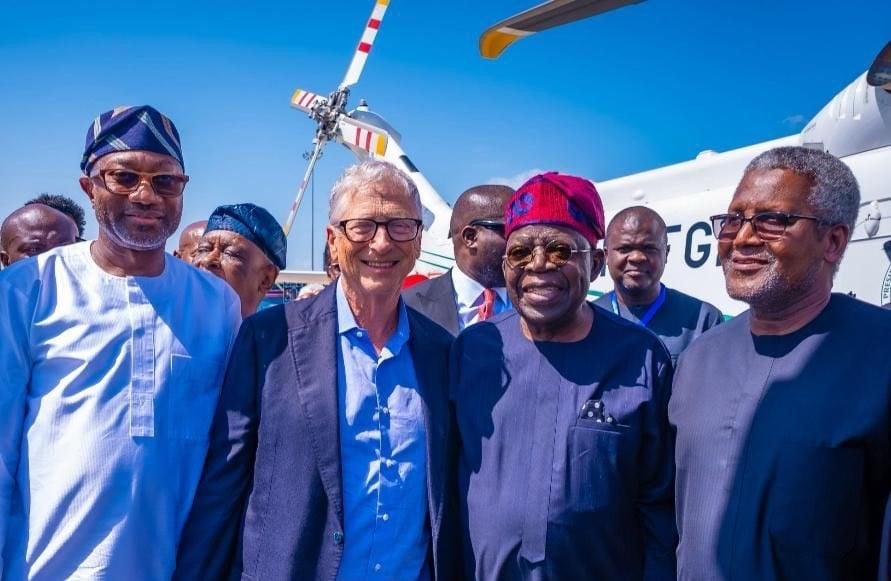President Tinubu Defends Lagos-Calabar Coastal Highway Project Amidst Criticisms and Land Revocations

President Bola Ahmed Tinubu has firmly addressed criticisms surrounding his administration's ambitious infrastructure agenda, particularly the Lagos-Calabar Coastal Highway and other legacy projects. He characterized opponents of these initiatives as being uninformed about the procurement structures and the significant national importance of the projects, emphasizing a transparent, section-based approach to their execution rather than as single bulk contracts as some critics alleged.
The President clarified that the Lagos-Calabar Coastal Highway is being developed in manageable sections. Only specific segments of the 750-kilometre route have been awarded, with the completed 30-kilometre portion falling under Section I, a 47.7-kilometre stretch handled by contractors under the Federal Executive Council’s phased approval. He noted that progress is also being made on Section II of the Lagos-Calabar Coastal Highway, a 55-kilometre stretch from Lagos to the Ogun State border, with over 10 kilometres already completed. Work is also ongoing in the Cross River and Akwa Ibom State sections, and the Federal Government had reportedly paid N18 billion as compensation for the coastal road by late May 2024.
Another key legacy project being revived is the Sokoto-Badagry Superhighway, initially envisioned nearly five decades ago during the Shagari administration. This superhighway spans seven states: Sokoto, Kebbi, Niger, Kwara, Oyo, Ogun, and Lagos. It is considered strategically important for agriculture, trade, industrialisation, and regional integration, connecting over 58 dams, vast arable farmlands, and trade routes to West African neighbours, also offering potential for windmill energy generation. In Kebbi State, over 10 kilometres of a three-lane carriageway have been completed, and the second carriageway has been flagged off, marking the longest single stretch within the legacy infrastructure portfolio. In Sokoto, work has started on a 120-kilometre three-lane section from Illela, with the first 10 kilometres already completed and the second carriageway flagged off.
The administration is also advancing other strategic routes, including the Trans-Sahara Trade Route, which will link Calabar to Abuja through Ebonyi, Benue, Kogi, and Nasarawa states, creating new commercial arteries across central Nigeria. President Tinubu also disclosed that he had directed accelerated design on the 4th Legacy Project, the Akwanga-Jos-Bauchi and Gombe corridor, to enable procurement to start.
President Tinubu emphasized the necessity of collaboration between state governments and the federal government, urging Governors to align building approvals with the Federal Ministry of Works and the Surveyor General of the Federation. This synergy aims to facilitate major road and bridge construction by reducing compensation burdens and project delays. He issued a stern warning regarding illegal developments and unregulated land reclamation, stating that approvals for illegal setbacks on federal highways will be revoked, and reiterated a ban on dredging within a 10-kilometre radius of all national bridges.
The strategic importance of infrastructure was further underscored during the official inauguration of the access road to the Lekki Deep Sea Port. President Tinubu described this road as vital for enhancing connectivity, facilitating investment inflows, and easing movement within the Lekki free trade zone. The reconstructed access roads are anticipated to drastically reduce logistics costs and ease congestion. Deputy Speaker of the House of Representatives, Benjamin Okezie Kalu, highlighted the Lekki Port's potential, stating it will handle 1.2 million TEUs yearly in its first phase, scaling up to 2.7 million TEUs, with the capacity to host mega vessels of up to 18,000 TEUs. He projected it would generate over $201 billion in federal and state revenue and create over 169,000 direct and indirect jobs, aligning with Nigeria’s Blue Economy Strategy and obligations under the African Continental Free Trade Area (AfCFTA).
Significant private sector involvement is bolstering the administration’s infrastructure drive. Aliko Dangote, President of Dangote Group, revealed an N900 billion investment in eight major road infrastructure projects across Nigeria, spanning approximately 500 kilometres, including the newly commissioned Deep Sea Concrete Road along the Lekki–Epe corridor. Dangote commended President Tinubu’s economic policies, such as the Naira-for-crude exchange framework and the











